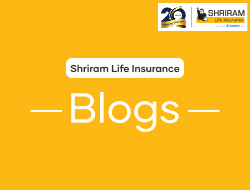80DDB Deduction Limit of Income Tax
- Posted On: 10 Oct 2025
- Updated On: 10 Oct 2025
- 339 Views
- 2 min read

Table of Contents
Treatments for severe health conditions can be taxing. That is not only true emotionally, but also financially. Knowing this and as a response, the Income Tax Act offers some relief through Section 80DDB. This section allows you to claim deductions for medical costs you may incur if you are diagnosed with certain critical illnesses. Getting this deduction means that the financial load on you will be lesser. Additionally, it ensures that the patient can receive the right treatment at the right time without worrying about tax.
Maximum Deduction Limit Under 80DDB
As per Section 80DDB of the Income Tax Act, the upper limit of this deduction is:
- ₹40,000 for individuals who are not senior citizens
- ₹1,00,000 for elderly individuals (aged 60 and above)
You should know that the exact deduction you receive will depend on which is lesser out of the actual medical expenses or the designated limit. This means that if the expenses of the treatment go above the limit, you will only get reimbursed up to the upper limit of the deduction.
Who Can Qualify for Deduction Under 80DDB?
This deduction can be claimed solely under the previous tax regime, making it essential to confirm your current regime prior to claiming. The deduction applies not only to you but also includes:
- Your partner
- Children who rely on others
- Parents in need of support
- Siblings relying on each other
What Ailments Are Included Under Section 80DDB?
Section 80DDB is tailored for severe, expensive medical conditions. Diseases that qualify include:
- Cancerous tumors
- End-stage kidney disease
- Blood-related illnesses
- Advanced-stage AIDS
Documentation Requirements for Section 80 DDB
To obtain this deduction, you need a medical certificate or prescription from a certified specialist. The certificate must explicitly indicate:
- Title of the illness
- Name and age of the patient
- Information about the specialist and their registration number
Managing Reimbursements
If your employer or insurance company covers any portion of your medical costs, you can solely claim the net out-of-pocket expenses. This guarantees that you won't assert deductions for funds you didn't genuinely use.
An Easy Illustration
Consider a taxpayer below 60 who incurs an expense of ₹80,000 for a covered medical condition in the Financial Year 2024-25:
- Scenario A - No reimbursement: They are eligible to claim the maximum amount of ₹40,000, since it is lower than the actual cost.
- Scenario B - With reimbursement: If insurance pays back ₹30,000, the deductible amount is:
₹40,000maximum - ₹30,000(reimbursement) = ₹10,000
Thus, a claim can only be made for ₹10,000.
Conclusion
Section 80DDB serves as more than a mere tax deduction - it provides relief from financial pressure during difficult periods. By knowing who is eligible, which conditions are included, and how reimbursements influence your deduction, you can fully utilize this advantage. Organize your documents and thoughtfully prepare your claim to make sure you benefit fully from what this section provides.
You may be interested in
People also search for
Our Other Popular Plans



